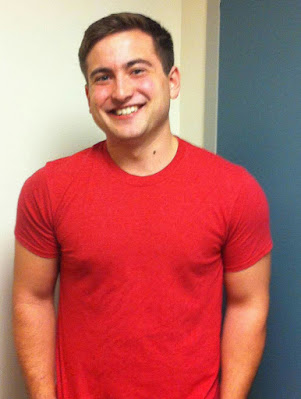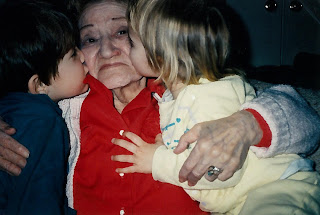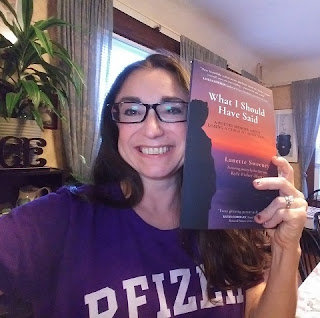Like many of us, I’ve found the pandemic greatly enhanced my reading life, allowing me to attend many more online book groups and author readings than I ever could have in person and to read more than 200 books over the past two years, with more and more of them being “read” as audiobooks. Some of these books were so fantastic I wanted to take a moment to recommend them. And I wanted to share what I’ve learned about my reading habits and how I hope that will affect my reading goals for 2022.
I counted up and categorized everything I read by genre and author, by gender and race and topic, and discovered, no surprise, that I read mostly literary fiction and thrillers by white women – but few, if any, of those books made my list of favorites. So I was happy to see that I’ve increased the number of books I read by Black authors and other POC by 5 percent over the past two years from 24 percent in 2020 to 29 percent in 2021, and I hope to continue hitting about a 70/30 split in my reading this year. Having this as a goal can help guide my choices as I’m deciding between two books. Since I’ve now joined Netgalley, become a regular user of my library app Libby, and am an avid user of the amazing app Scrib’d, having to be judicious in my reading choices is a daily concern.
Deciding to read more books by authors of color is not an act of altruism; it’s a direct benefit to me. Turns out my favorite novels tackle issues of racism, sexism, homophobia, and/or or the environmental crisis, and in my experience, authors of color are more likely to include these subjects as part of their storylines. It’s not that I love reading about depressing topics, but books about something bigger than navel gazing (e.g., infidelity, murder solving, family secrets) are just more compelling and make for a better read. Plus in deft authorial hands, these subjects are not depressing; seeing brave characters confront challenges and overcome them is inspiring.
I used to think I didn’t like non-fiction, but as I’m aging, I’m coming to enjoy more memoirs, plus reading more poetry and discovering several excellent books about how to be more anti-racist have increased the number of non-fiction books I’ve read, too. I also am surprised to see how many of the books I’ve enjoyed have been speculative or sci-fi books, as I hadn’t previously thought of myself as a fan of sci-fi; this is probably because of the surging popularity of near-future dystopias.
I am a high grader on Goodreads, giving most books I finish a four or a five, but that’s because I don’t finish a lot of crappy books. (Life’s too short.) But of all the five-star reviews I’ve given, only a dozen or so novels are still sharp in my mind, all books I would definitely highly recommend if you’re looking for a good read. Here they are, starting with the most recently read. Each one links back to my Goodreads review.
Razorblade Tears by S.A. Cosby – a fantastic crime thriller about two fathers, one black and one white, who reluctantly team up to find out who killed their sons, who were married to one another. The fathers were homophobes who missed the chance to accept their sons when they were alive, so they are driven after the murders by a potent mix of guilt and regret.The School for Good Mothers by Jessamine Chen – a deeply disturbing near-future dystopia that creates for-profit mother-training centers. If you’ve ever seen family court in action, this chilling book is all too believable.
The Prophets by Robert Jones Jr. – a poignant, powerful novel about two men who love and make a life with one another despite living under the tortures of slavery.
The Knockout Queen by Rufi Thorpe – Two misfit, outcast kids with no stable parents, one a gay boy and one a freakishly tall girl, become best friends and help one another through high school until their paths painfully diverge.
Transcendent Kingdom by Yaa Gyasi – A Black woman scientist, who spent part of her girlhood in her mother’s home country of Ghana, researches a cure for addiction in the wake of a family tragedy.
Saint X by Alexis Schaitkin – The surviving sister of a murder victim whose killer was never convicted finds her adulthood shaped by the need to placate her broken parents and find her sister’s killer.
My Dark Vanessa by Elizabeth Kate Russell – A young woman falls in love with a teacher and lets their affair shape her future, taking decades to realize that she was groomed and victimized.
This is How it Always Is by Laurie Frankel – A beautiful family novel featuring richly drawn parents and siblings who rally around their youngest member when she decides to transition in early childhood..
Such a Fun Age by Kiley Reid – A hilarious, affecting novel about a Black babysitter and her relationships with the white mother who hires her, the white boyfriend who courts her, and the white child she cares for and comes to love.
The Nickel Boys by Colson Whitehead – A dark, hard novel about a correctional facility for Black youth in the 1950s and how friendship helped some young men survive the brutal conditions. I still remember the sharp surprise of the twist at the end.
American Dirt by Jeanine Cummins – One of the best novels I’ve ever read, focused on the gang murder of a family and the attempt by the surviving mother and child to flee to the United States. Written with compassion and sensitivity, the determination of the mother is especially compelling when one considers how many thousands of such desperate mothers attempt this trek with their small children each year.
And here are my top 10 favorite non-fiction reads of the past two years, which I am disappointed to see doesn't include any poetry, something I will also focus on more in the year ahead:
Educated by Tara Westover – my favorite-ever memoir, about a young woman raised on a right-wing compound by a crazy, controlling father, and how her world opened up when she got to go to school.
Caste: The Origins of Our Discontents -- A master class in presenting a well-supported, compelling argument. Makes clear how much our society is based on an unspoken system of racial caste.
Catch and Kill: Lies, Spies, and a Conspiracy to Protect Predators by my hero Ronan Farrow – the shocking story not just of how Harvey Weinstein and other predators got away with sexually assaulting women for decades but also of how hard it was to get this story out after NBC tried to kill it.
How to Be Anti-Racist by Ibram X Kendi – Foundational work that helped me understand the difference between saying “I’m not racist” and learning to live as an active anti-racist.
The Biggest Bluff: How I Learned to Pay Attention, Master Myself, and Win by Maria Konnikova – This research-based memoir by a woman who learned to play championship poker contains surprising lessons about how women’s need to please costs us in myriad ways.
I Want to Be Where the Normal People Are by Rachel Bloom -- because sometimes you just gotta laugh and navel gaze. This one must be enjoyed via the audio version because there are songs.
You’ll Never Believe What Happened to Lacey: Crazy Stories about Racism by Amber Ruffin – the title says it all. While there is a lot of humor in this book, the cumulative effect of realizing how much shit Black people have to take in their day-to-day lives should hit white people like a brick to the head.
How to Change Your Mind: What the New Science of Psychedelics Teaches Us about Consciousness, Dying, Addiction, Depression and Transcendence by Michael Pollan – Brilliantly researched and compelling, with startling news about how popular psychedelic drugs were becoming among researchers in the 1950s before anti-drug messaging based on racism shut that research down. Bill, the father of AA, was actually only able to get clean after having a transcendent experience while tripping on LSD, but he and his biographers felt that didn’t fit with his image, so they took that out of his story in the Big Book. Of all the stories Pollan shares, I found that one the most disturbing. How many alcoholics thought they were failures because they couldn't pray the booze away while they were denied the real story of how Bill got clean?
A Year of Lovingkindness to Myself by Brigid Lowry – a beautiful, compassionate book of essays about treating ourselves and one another more gently.
Take some time to think about what your favorite reads have been since the start of the pandemic. What subjects stand out? Which authors? I am surprised to see that even though less than 30 percent of the novels I read were by people of color, 50 percent of my favorites were. How might studying the breakdown of what you’ve been reading affect your own reading choices for 2022? I'm excited that this examination of my own reading has helped guide my reading for the year ahead.
Happy reading, everybody! I love to talk about books almost as much as I love to read them, so please share your own thoughts and recommendations in the comments.















